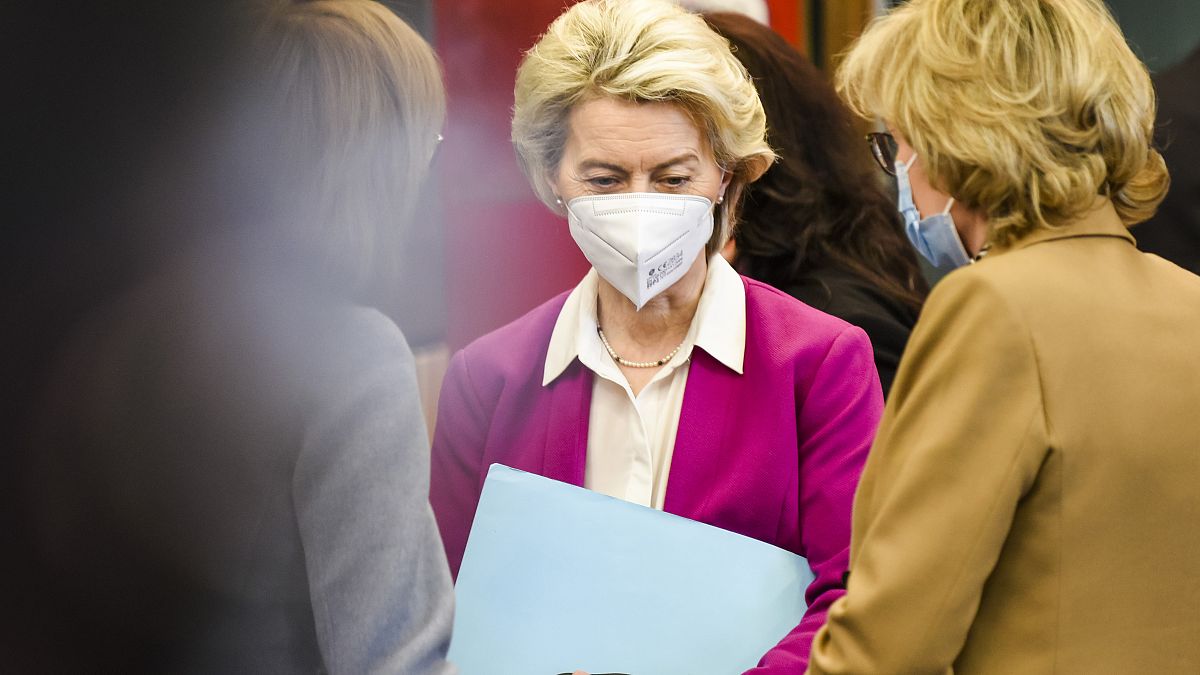The European Commission presented a proposal for a directive on International Women's Day.
The European Commission has unveiled plans to harmonise the criminalisation of violence against women across the 27-nation bloc.
The EU's executive arm has proposed making rape a criminal offence strictly when there is no consent, as well as other uniform punishments for female genital mutilation and cyber violence.
Most EU member states already treat violence against women and girls as a crime, but the Commission said there are gaps in national legislation.
While rape is criminalised across the bloc, 18 countries still require the use of force or threats for the offence to be punished.
The proposed directive unveiled by the European Commission on International Women’s Day also lays out targeted support from member countries to specific groups, including women fleeing armed conflict.
'I want Europe to be on the side of women'
The issue has gained further prominence since Russia invaded Ukraine last month, forcing hundreds of thousands of Ukrainian women and children to flee their country and expose themselves to exploitation by human traffickers.
Helena Dalli, the EU Commissioner for Equality, said rape is being used “as a weapon of war” in Ukraine.
According to EU data, an average of one in three women in the bloc has experienced physical or sexual violence by the age of 15. In addition, one in two have experienced sexual harassment, with one in 20 women reporting having been raped.
The Commission proposed introducing a “minimum maximum sentence” of eight years in prison for rape and five years for female genital mutilation, with member countries entitled to impose higher maximum sentences.
“I want Europe to be at the side of women with protection and support," said European Commission president Ursula von der Leyen.
"I want a society where violence against women is prevented, condemned, and prosecuted when it occurs,” she added.
“The time for justice and equality is now. That’s why we come forward today with the right rules to accelerate change.”
Commission Vice-President Vera Jourova added that domestic violence had "increased enormously during the COVID-19 pandemic".
With its proposal, the Commission said it also wants to improve access to justice and support for victims and ensure coordination between services.
Online violence, femicide plague Europe
According to the EU’s executive branch, online violence is on the rise, with female journalists and politicians particularly exposed. Around a third of women in the EU have also faced violence or sexual harassment at work.
The Commission’s proposal to make cyber violence illegal -- including non-consensual sharing of intimate images -- complements the EU’s so-called Digital Services Act that includes a raft of measures to better protect internet users.
Elsewhere in the world, riot police set up barricades and fired pepper gas to block demonstrators from joining an International Women's Day march in central Istanbul. At least 38 women were detained, media reports said.
Demonstrators in Turkey use the March 8 events to press for strong measures to prevent violence against women by former partners or family members.
At least 73 women were killed in Turkey since the start of the year, according to the We Will Stop Femicide Platform.
President Recep Tayyip Erdoğan's government withdrew Turkey from a European treaty on combating violence against women last year, drawing similar protests and widespread international condemnation.
